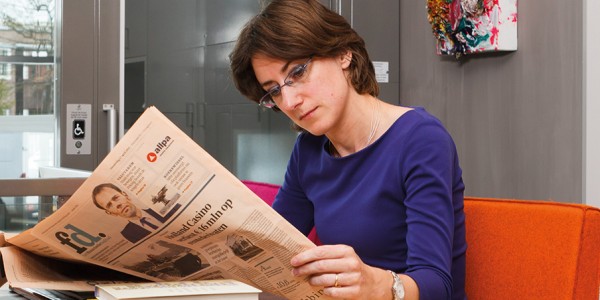
Partner concept for inheritance tax and gift tax for siblings living together
Definition partner for inheritance tax and gift tax
The Inheritance Tax Act has a high exemption for the partner of the testator (for 2023 this amounts to €680,645) and what the partners acquire by virtue of inheritance or gift is taxed at the rate for rate group I (10%/20%).
Who qualifies as a partner for the purposes of the Inheritance Tax Act is determined according to a definition included separately in the Inheritance Tax Act for this purpose. The partner concept for unmarried persons under the Inheritance Tax Act differs from the partner concept for unmarried persons under the Income Tax Act.
Unmarried persons are considered each other's partners for the purposes of the Inheritance Tax Act if the following conditions are met:
- both are of age;
- they are registered at the same address in the basic registration;
- there is a notarial cohabitation agreement which includes the provision that the partners should provide care to each other;
- they are not blood relatives in the direct line (e.g. parent/child/grandchild);
- they do not meet the above conditions for being partners with another person.
To qualify as an unmarried person as a partner of the testator for inheritance tax purposes, the above conditions must have been met for at least a period of six months prior to the testator's death and for gift, the above conditions must have been met for two years prior to the gift.
There is an important exception to the aforementioned condition of having a notarised cohabitation agreement. This condition does not apply if the parties have been registered at the same address in the land registry for an uninterrupted period of five years prior to the death or donation.
Starting date of the five-year period
Whether this exceptional situation applied to an acquisition of a man who inherited from his sister, with whom he was living together at the time of his sister's death, the Arnhem-Leeuwarden Court of Appeal ruled last year.
The man lived with his sister and her husband from 1969 and were all registered at the same address in the municipal basic registration. In 2017, the man's brother-in-law died. Brother and sister continued to live together at the same address after that death. The brother and sister had not entered into a notarised cohabitation agreement. On 1 January 2019, the man's sister died.
The man was his sister's heir and claimed the high exemption applicable to partners. The court initially ruled that the man could not rely on that exemption because the woman already had a partner until the date of her husband's death and the five-year exemption period only started to run from the time the sister's husband died.
The appeals court, however, unlike the court, ruled that the parliamentary history offers no indication that the five-year cohabitation requirement began to run from the time the sister was no longer married. According to the court, the man therefore had to be considered a partner because he had lived with her for five years at the time of his sister's death and the other conditions of partnership had also been met.
The State Secretary of Finance informed that he believed the court's conclusions were correct and rested in that ruling.
Aggregation of gift/inheritance acquisitions for unmarried partners
The partner concept can be unfavourable for unmarried cohabiting blood relatives, such as brother and sister, due to the so-called aggregation rule in the Inheritance Tax Act. Under this rule, gifts (in one year) or inheritance acquisitions originating from one person to each of the partners are regarded as acquisitions by one person. As a result, the applicable exemption can only be applied once and the rate is applied to the joint amount of that donation or inheritance acquisition. However, in a separate Decree, the State Secretary of Finance has informed that this aggregation rule can remain inapplicable if the following conditions are met:
- the partnership arises only because the partners have lived together continuously for five years (i.e. not through a cohabitation agreement);
- the testator or donor is in the same degree of consanguinity with respect to each of the beneficiaries (e.g. brother and sister);
- the beneficiaries are blood relatives of each other.
This decree removes, possibly unforeseen, disadvantageous consequence of qualifying partnership, of cohabitation of brother and sister, for example, when acquiring an estate from their parents. The advantages of being regarded as the brother's/sister's partner, in case of acquisition under inheritance law or gift law, of the person with whom the brother/sister cohabited, as applicable in the case discussed above, will continue to apply unimpaired.
Should you have any questions about inheritance tax and/or gift tax, please contact Ivo Janssens directly.


